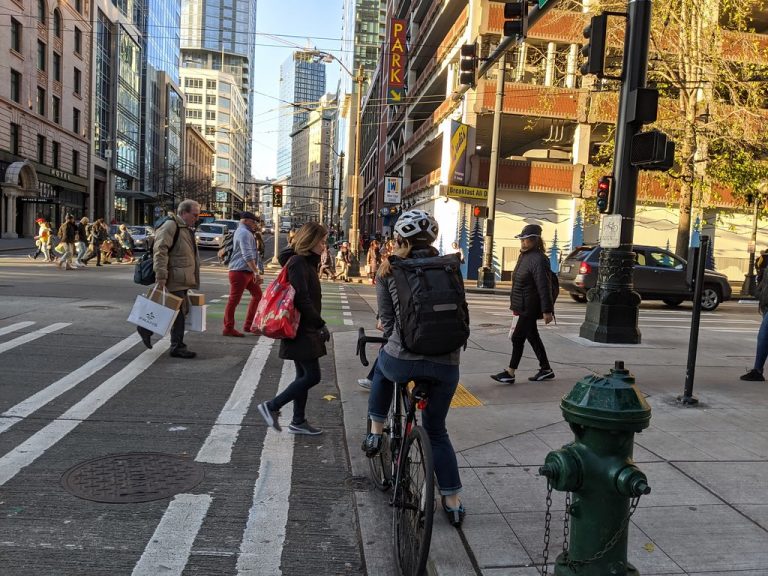Published on February 24, 2021

In the fall of 2019, a white man spat on Edwin Lindo while he was riding his bicycle with a friend around Mercer Island.
“It gets on my jersey and I’m like, ‘I can’t believe this is happening right now,’” he recalled.
Lindo, who identifies as Central American Indigenous from Nicaragua and El Salvador, and his friend, Aaron Bossett, who is Black, viewed the encounter as a racist attempt to exclude them from the biking community. But even before that incident, Lindo knew Black and brown people were treated differently while bike-riding, taking transit, driving and using other forms of transportation. Now, Lindo has joined a chorus of individuals and organizations calling for the repeal of the King County law that requires bicyclists to wear helmets because of disproportionate enforcement, especially among Black, Native and homeless riders.
“Folks aren’t riding around without helmets because it’s fun. They’re doing it because helmets aren’t cheap,” said Lindo, who wears a helmet when he rides and started the biking group NorthStar Cycling Club to support riders who are Black, Indigenous and people of color. “Buy them a helmet and you won’t have to penalize them.”
The biking organizations Cascade Bicycle Club and Washington Bikes encourage riders to wear helmets but oppose the mandatory laws. The street newspaper Real Change also opposes the requirement. Other cities, including Tacoma, have already repealed mandatory helmet laws. Medical experts, however, say studies show helmets help prevent head injuries and they worry about loosening such laws.
“The data are very clear: helmets prevent brain injury. All should be protected,” Dr. Frederick Rivara, professor of pediatrics at the University of Washington School of Medicine, said in an email.
An analysis of 1,667 helmet citations issued between 2003 and 2020 in Seattle found that Black cyclists received helmet infractions at a rate nearly four times higher than white cyclists. Native American/Alaska Native cyclists were cited at a rate more than two times higher than white riders.
University of Washington doctoral student Ethan C. Campbell conducted the infractions analysis for Central Seattle Greenways, a branch of the street safety group Seattle Neighborhood Greenways. After this summer’s protests for racial justice, he and about 30 other people began meeting monthly to discuss ways to make the transportation system work better for people of color.
Reviewing the helmet law could offer “a valuable opportunity to both address the issue of the law’s deeply inequitable enforcement and refocus the goal on a broader definition of cyclist safety that does not involve police,” he said.
In addition to Campbell’s research, an analysis of court records by the news organization Crosscut found that 43% of citations under the county’s all-ages helmet law issued since 2017 were given to people struggling with homelessness.
Continue reading at the Seattle Times.
Originally written by Michelle Baruchman for the Seattle Times.